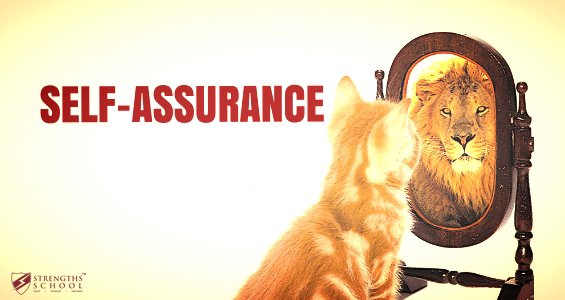Growing Talent to Strength: Featuring StrengthsFinder 'Self-Assurance'
"I already knew that."
The Wife calls this the conversation killer.
When the Wife shares with me a new discovery or something she learnt, this statement "I already knew that" is usually a response that puts her off. Even though this is a statement of fact in my mind, it unfortunately communicates the idea of cockiness to the Wife. I often come across as a know-it-all. To make things worse, I'm often at a loss for words when I'm asked to explain why I'm so certain or confident of my decisions or judgments. Many may not understand that I arrive at my conclusions often based on my gut feelings and instincts. As a result, conversations end up with a quick "just trust me" or "I can't explain, I just know it." I'm thankful that the Wife has since accepted this controversial idea of using my gut feelings and instinct in making decisions (which is, by the way, against every grain of her Deliberative Theme). I am still working hard on learning communication techniques to reduce conflicts between us.
Those with "Self-Assurance" in their top 5 StrengthsFinder results have faith in their strengths and their judgments. They are often able to take risks, meet new challenges and most importantly, believe in their abilities to deliver. This Self-Assurance may be quiet or loud depending on their other talent themes, but it is solid and strong. Like the anchor of a ship, it can withstand many different pressures and gives the person a self-belief that is often unwavering. As someone with Self-Assurance , I feel confident of my own abilities, instincts, and judgements. Even when I don't really know something, the gut feeling is, "I'm sure I can figure this out!”
I love pioneering work and going into new ground. I feel drawn toward taking on challenges, especially those that I feel others don't seem to dare try. Many of my proudest achievements are projects that bore fruit because of the risks that I chose to take. I often feel the certainty within me allows me to be courageous in embracing challenges and overcoming them.
One of the "risks" I chose to take was to start Strengths School™ together with my business partner, Jason Ho. I decided to leave my job and become a full-time StrengthsFinder coach and trainer in Singapore. Being an entrepreneur was an idea that I've always toyed with in my mind. Stepping out to coach others in the area of knowing and applying their strengths is an exciting and challenging path that seems intuitively right to me. Many may question this decision of starting a new company, especially at a time that coincided with the birth of my second child. The decision was actually made based on my gut feelings (and with great support from the lovely Wife).
How can someone turn this Self-Assurance talent into a Strength? Here are a few suggestions.
1. Grow the Inner Life.
Self-Assurance as a StrengthsFinder theme works primarily on the INTERNAL certainty or capacity of an individual. This is in contrast to themes like Command or Significance, which are influenced more by external circumstances. Even when there are external uncertainties or chaos, people with Self-Assurance can be confident as long as their inner compass stays focus and rooted.
But here's the kicker: those with Self-Assurance must watch out for things that may make that inner compass go awry. These are primarily issues that deal with the inner life or the internal certainty of an individual. Examples of such issues are struggles with guilt or unforgiveness towards self and others.
There was a period during which I allowed a past failure to affect me. I started to operate in fear in many daily decisions. I lost confidence in my own gut feel and intuition. This was only brought to my attention when a mentor pointed this out shrewdly and encouraged me to re-examine my focus. I realized that when a person with Self-Assurance operates in infancy, this person can often operate in fear of people or in total arrogance without regard for others.
A few reflection questions here provide handles toward examining the inner life:
- Am I holding on to any kind of bitterness?
- Are there any past fears or failures that have deeply shaken the confidence I have in myself?
- Are there any areas I should forgive myself in?
- In what areas do I struggle with guilt?
2. Differentiate Inner Strength and External Validations
People with Self-Assurance are more effective when they focus on their knowledge, skills and experience and what they can offer from within them. Doing so is not easy, especially when external factors are not in their favour. But keeping focus often allows people with Self-Assurance to overcome the external setbacks by digging deep into their knowledge, experience, and skill sets.
For example, in a presentation, people with Self-Assurance are able to perform at a very high level even when technical difficulties or unexpected situations arise. The confidence from within allows them to overcome any setbacks by drawing on their internal strength. Often the ability to influence or to make an impression lies in the confidence shown by the individual who refuses to be overwhelmed by external situations that are not in his/her favour.
3. Seek Complementary Partnerships
Partner people strong in Deliberative
People with Deliberative are usually risk-averse and think deeply into the areas that could go wrong. Partnering with Deliberative allows Self-Assurance people to identify areas of potential challenges. Since people with Self-Assurance innately have a great appetite for risks, these partnerships allow for greater clarity of decisions made when it comes to taking “calculated” risks. When it comes to decisions that could potentially affect a huge number of people, a Leader with Self-Assurance would do well to seek out these partnerships. This allows for a greater level of accountability and governance and makes the decision-making model more robust.
Partner people strong in Includer or Harmony
People with Includer or Harmony in their top 5 are people who are usually more team-oriented or community-based. They use more words such as “We” or “Our Team” as compared to a person with Self-Assurance who tends to use words such as “I” or “My team.”
Partnering with Includer or Harmony allows Self-Assurance to grow into a more team-oriented, community-minded individual. This partnership challenges the Self-Assurance to be more aware of team dynamics. Decision-making processes can then have greater involvement or input from members of the team. Learning to listen to the concerns of others, including the intuition of others, allows for a more robust decision-making model.
Ending note: Those with Self-Assurance can sometimes come across as people who are not easy to work with. Given the right environment to flourish, the biggest value that a Self-Assurance person brings to a team is the boldness and courage to pioneer new ground and embark on new initiatives.
Written by Victor Seet
Activator • Communication • Strategic • Self-Assurance • Command
As a Gallup certified Strengthsfinder coach, Victor is passionate about strengths engagement and now runs his own training company, Strengths School™ (strengthsschool.com). He has been actively giving Strengthsfinder leadership and team building workshops to businesses and schools in Singapore as well as Hong Kong, China (Shanghai) and India.



